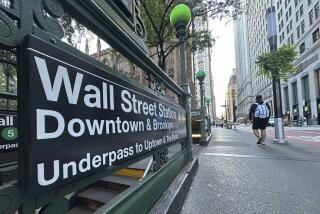China’s economic growth passes 11%
- Share via
SHANGHAI — China reported Thursday that economic growth accelerated in the first quarter to a sizzling rate of 11.1%, heightening concerns that the world’s fourth-largest economy is expanding too quickly.
The larger-than-expected growth rate, compared with 10.4% in the fourth quarter, will almost certainly prompt China’s government to hit the brakes harder. Beijing is expected to further raise interest rates and bank reserve requirements in an effort to rein in lending and investments that have built factories, boosted production and inflated property and stock prices.
Some analysts also predicted that policymakers would let China’s currency appreciate at a faster pace. A stronger yuan could help reduce the nation’s massive trade surplus by making Chinese goods more expensive for overseas buyers.
China’s exports, which have been a major contributor to its economic growth and a source of cash for investments, have led to increasing tension with some of its biggest trading partners, including the United States and the European Union.
In announcing the first-quarter economic statistics, a spokesman for the National Bureau of Statistics acknowledged the economy’s increased risk of overheating, a term that describes conditions of excessive demand or investment that can generate inflation, or “bubbles,” in property and equity markets.
Some analysts worry that China’s runaway growth is resulting in overbuilding and other imbalances in the economy. If such trends end in a flurry of bad debts, bankruptcies or other problems, that could depress a major economic engine and send ripples around the globe.
After the release of the data, China’s State Council, or cabinet, said it would step up efforts to curb new investments and steer a course toward sound growth. The government previously said it was aiming for an annual growth rate of 8% and wanted to curb development that harms the environment and soaks up resources.
“An overheated economy may not cause big problems in the short term, but it is unsustainable and harmful for stable development,” said Zuo Xiaolei, chief economist at China Galaxy Securities Co. in Beijing.
She and other analysts said the main culprit behind over-investment was low interest rates, which have given individuals and businesses access to cheap credit to launch new capital projects and pump more money into property and equity markets.
The specter of further restrictions on lending and investment triggered a big sell-off in Chinese stocks Thursday and sent shudders into other Asian markets. The Shanghai composite stock index fell 4.5% to 3,999 points, the biggest single-day drop since it plunged 8.8% in late February, and set off a wave of selling around the world. Yet even with Thursday’s loss, the Shanghai index is up 29% for the year.
In early trading today, China’s stock market was rebounding.
“It has been rising crazily for so long, it’s about that time to adjust,” said Xu Canghong, a 70-year-old Shanghai man who joined the selling frenzy Thursday by unloading half of his $6,500 stock portfolio. Xu said he sold because investors were panicking, and he could see trading volume soaring during the day.
Stephen Green, a senior economist at Standard Chartered in Shanghai, said the boom in China’s stocks appear to be giving rise to a “wealth effect” that is boosting consumption. Chinese officials said Thursday that retail sales in March rose 14.9% from a year earlier.
But unlike in the U.S., consumption accounts for a fairly small part of China’s growth. The major drivers -- net exports, factory output, investments in land, factories and equipment -- all accelerated in the quarter.
More to Read
Sign up for Essential California
The most important California stories and recommendations in your inbox every morning.
You may occasionally receive promotional content from the Los Angeles Times.














